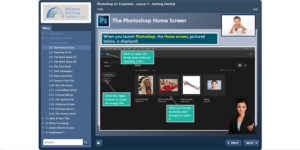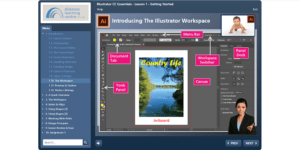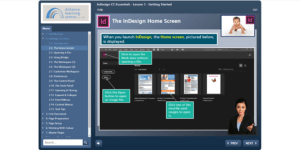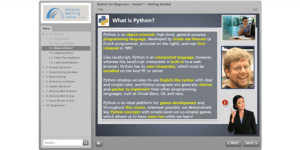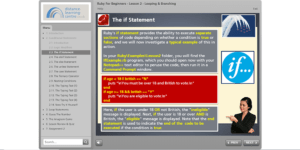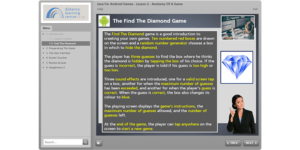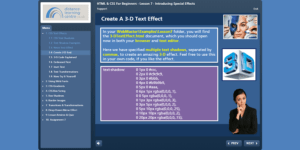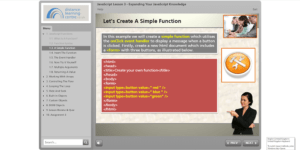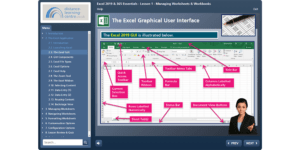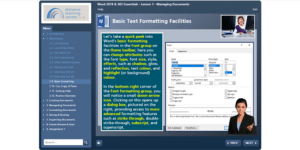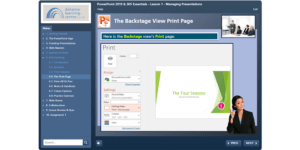Python for Beginners – Level 3 Course
The Python for Beginners – Level 3 Course is designed for students wanting to get started with this high-level general-purpose programming language. Python can be easy to pick up whether you’re a first time programmer or you’re experienced with other languages.
Python’s easy-to-learn syntax facilitates high-readability, reducing the cost of program maintenance, and supports modules and packages, which encourages modularity and code reuse. The Python interpreter and extensive library are available completely free of charge for all major platforms, and can be freely distributed. Although Python’s clear and simple syntax makes it the perfect beginners’ language, it has all of the power and flexibility of a complex object-oriented programming language. Using the proven learn-by-example technique, we take you step-by-step through the Python language by introducing you to a number of interesting games.
On successful completion of the course, students will receive the Distance Learning Centre Python for Beginners Diploma with feedback and analysis of your completed work, as well as an Open Awards Quality Endorsed Unit Course Certificate.
uNITS
The Python for Beginners – Level 3 Course includes the following units:
Unit 1: Getting Started
The following topics are covered:
- Introduction;
- Introduction to Python;
- Understanding Variables;
- Python Strings;
- Performing Arithmetic;
- Logical Operations;
- Working With Numbers;
- Working With Strings;
- Lesson Review & Quiz;
- Assignment 1 – The Trivia Program.
Unit 2: Looping & Branching
The following topics are covered:
- Introduction;
- Branching Statements;
- The WHILE Loop;
- Guess The Number Game;
- The FOR Loop;
- The Anagram Game;
- Lesson Review & Quiz;
- Assignment 2 – Guess The Word Game.
Unit 3: Lists & Dictionaries
The following topics are covered:
- Introduction;
- Introducing Lists;
- List Methods;
- Nested Sequences;
- Introducing Dictionaries;
- The Hangman Game;
- Lesson Review & Quiz;
- Assignment 3 – The Anagram Game with Clues.
Unit 4: Functions
The following topics are covered:
- Introduction;
- Creating Functions;
- Parameters & Arguments;
- Variables in Functions;
- The Noughts & Crosses Game (1);
- The Noughts & Crosses Game (2);
- Lesson Review & Quiz;
- Assignment 4 – Updating the Hangman Game.
Unit 5: Accessing Files
The following topics are covered:
- Introduction;
- Accessing Text Files;
- Storing Complex Data in Files;
- Handling Exceptions;
- The Sports Quiz;
- Lesson Review & Quiz;
- Assignment 5 – Build Your Own Quiz.
Unit 6: Python Objects
The following topics are included:
- Introduction;
- Classes, Methods, & Objects;
- Constructors & Attributes;
- Class Attributes & Static Methods;
- Private Attributes, Methods & Properties;
- The Hungry Caterpillar Game;
- Lesson Review & Quiz;
- Assignment 6 – Create A Television Object.
Unit 7: Object-Orientated Programming
The following topics are covered:
- Introduction;
- Creating Multiple Classes;
- Inheritance;
- Changing Inherited Methods;
- Creating Modules;
- The Blackjack Game (1);
- The Blackjack Game (2);
- Lesson Review & Quiz;
- Assignment 7 – The Highest Card Game.
Unit 8: GUI Development
The following topics are covered:
- Introduction;
- Event-Driven Programming (1);
- Event-Driven Programming (2);
- Check Boxes Plus;
- The Grid Layout Manager;
- The Contact Form;
- Lesson Review & Quiz;
- Assignment 8 – Find the Diamond Game.
Unit 9: Incorporating Graphics
The following topics are covered:
- Introduction;
- Graphics Window Basics;
- Displaying Objects;
- Moving Sprites;
- Collision Detection;
- The “Catch The Butterfly” Game;
- Lesson Review & Quiz;
- Assignment 9 – Build A Ping Pong Game.
Unit 10: Adding Sound & Animation
The following topics are covered:
- Introduction;
- Keyboard Commands;
- Animation, Sound, & Music;
- The Meteor Mayhem Game (Part 1);
- The Meteor Mayhem Game (Part 2);
- The Meteor Mayhem Game (Part 3);
- The Meteor Mayhem Game (Part 4);
- Lesson Review & Quiz;
- Assignment 10 – Add Comets To The Meteor Mayhem Game.
Key Information
Cost
Course Format
Self-study Time
Delivery Time
Prerequisites
Students should have: a working knowledge of using text editors or word processors; A basic understanding of your computer’s operating system; A working knowledge of your email software and the ability to attach files to an email; A basic knowledge of file zipping software such as WinZip or 7-Zip; and Some experience of downloading and installing software packages from the web.
Although Python is available for Linux and MacOs as well as Windows, the installation and running instructions are for the Windows operating system. All other software is provided with the course. Installer files for Python, Pygame, Liverwires and Notepadd++ are included in the course materials.
Course Duration & Online Support
You can start this course at any time, and you would be registered for a one-year period. You also have access to a personal tutor who can be contacted by email. Your tutor is available to assist with any queries and to mark your assignments for the Awarding Body.
As the course is self-study, you can complete it as quickly as you like. Support extensions are available if students do not complete the course within the one-year period.
Assessment
You will be assessed on the completed assignments contained in the training programme. The coursework will consists of individual practical programming assignments that can be sent to your course tutor by email or by post on completion of your training.
Open Awards Certification
On successful completion of this course students will receive our Python for Beginners Diploma with feedback on your work and providing the assignments have been completed to the required standards students will also receive a Level 3 Open Awards Quality Endorsed Unit Course Certificate with 8 Open Awards Credits.
The completion of this course alone does not lead to an Ofqual regulated qualification but may be used as evidence of knowledge and skills towards regulated qualifications in the future. To this end the learning outcomes of the course have been benchmarked at Level 3 against level descriptors published by Ofqual, to indicate the depth of study and level of difficulty involved in successful completion by the learner.
You can find further information on qualifications/certificates and their levels on the Ofqual’s level descriptors page.
The certification is issued through Open Awards. Open Awards are an Awarding Body Organisation approved by Ofqual. Set up in 1981, Open Awards (Previously the North West Region of the National Open College Network – OCNNW) have been in business for over 30 years and are a not for profit organisation and a registered charity.




